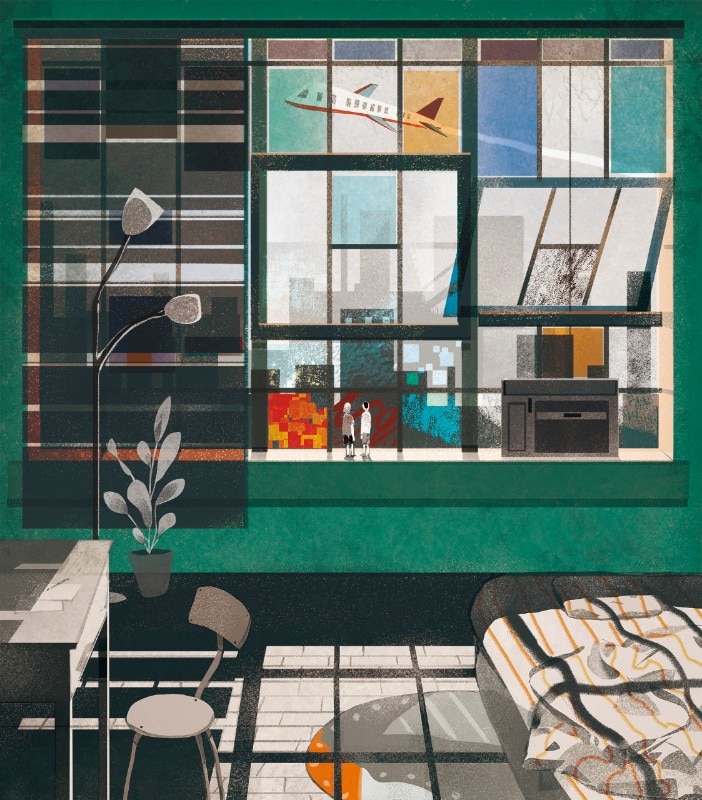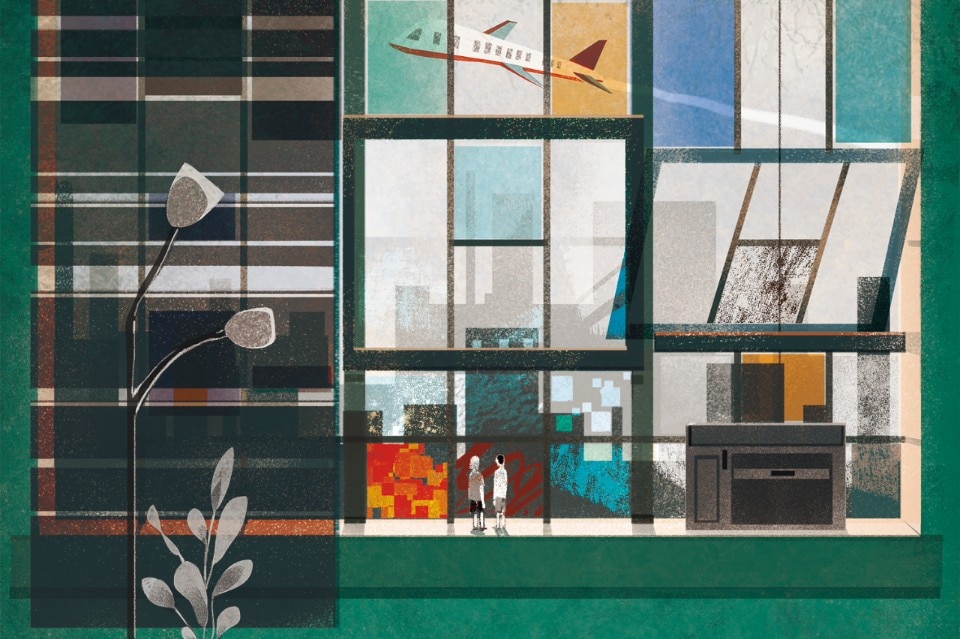This article was originally published on Domus 1072, October 2022.
I think that, for me, writing and running away from home have always been the opposite consequences of the same urge, and they’re related to a sort of instinct to disappear. Or rather an attempt to exist by vanishing from sight. When writing, you try to stay as still as possible, as a quarry would do in the woods to evade capture. When escaping, you run as fast as you can, find a bend and then catch your breath. In both cases, by avoiding being a target, you exist more fully, with a sort of desperate happiness.
This is why I think I’m destined to change houses or keep searching for a new one. I began to write seriously when I ran away from the house where my parents lived. It was no longer enough to be invisible, leaning over the page, because my writing wasn’t invisible to them and they were nonetheless visible to me. And that didn’t save anyone from the malaise of feeling like part of the same defeat.
But I especially remember that world split in two: the kitchen and two bedrooms downstairs – and our post upstairs that was like a tree house, a world we created above the clouds.
When I was 20, sojourning a couple of times a week in a house that wasn’t my own just outside Turin, with someone else’s family to pass off as mine, was also a consequence of the same instinctive desire to exist from scratch. Having a room there, starting to leave my body’s impression on the mattress time after time, was like digging a trench out of which I could raise my head. For three years, at the end of my week at university, instead of catching the train back to the provinces, I’d take the airport bus from the centre of Turin. When I started to glimpse planes through the driver’s windscreen, I’d get off by a petrol station in the town of Caselle and set off to a house. Ringing the bell, leaving my bag in my room, going upstairs and sitting beside Roberto, a fellow student of mine, to watch the planes landing was the sort of thing you do in those years when you’d like to be everything and you’re afraid of being nothing forever.
From downstairs I could hear the covering fire of domestic life, that sense of being protected by a family for the sole fact that it wasn’t your own, and of making a home in an ordinary house. Nearly 25 years on, I recall the interior of that house better than its exterior. I remember the sky and the coming and going of planes I’d never caught. But I especially remember that world split in two: the kitchen and two bedrooms downstairs – with a silent, ever-occupied mother and a talkative father, a mix of down-to-earthness and abrupt digressions – and our post upstairs that was like a tree house, a world we created above the clouds.

Only there was it possible to disappear and live together, staying deep in conversation till dawn, sharing our wounds and poems, and talking about how scary life is. The fact that it was a two-storey house and I don’t remember the stairs can’t be a coincidence. How did we get upstairs? Downstairs was for dining at the table, soaking up the warmth of a borrowed family, where pretending to be a son was the storyline I played out every mealtime. Upstairs was the completely unrelated place where we used to hang out: an attic for looking down on the world without being seen, observing the shadow of the lampposts over the street, the blissful solitude of dog owners walking their dogs. Above all, it was just the two of us, thinking friendship would save us, that no love could compare. That even if our parachute failed to open, we’d hurtle to the ground gripping each other with neither letting go.
While the windows rattled every time a plane appeared and then disappeared in the sky. I remember that the building was on the edge of town, which was somehow the only place for it. The rest were the fields where Roberto and I used to walk to the point of exhaustion, wandering in circles till the verge of darkness, but without really losing sight of the houses. We spoke about the books we’d write, how we’d never grow corrupt, how we’d never lose touch. And envying each other ever so slightly, just enough never to lose hope – of truly making it, of becoming each like the other, of being happy – without deluding ourselves that we’d learn to live, but maybe that we’d at least learn to write and live in perfect sentences.
It was perhaps the most important house I’ve ever stayed in, the only one where writing and not knowing how to live didn’t come into conflict but gave me a right of citizenship.
My memory is etched with the aimless strolls we took as darkness rose and engulfed the houses, to cite Roberto’s verse. It was an endless circumnavigation, as we pretended to orbit a centre that wasn’t there. We felt free precisely because we had the intuition – which you can only tolerate without going mad when you’re 20 – that at the centre there was nothing but empty space. Afterwards, when everyone else was asleep, we’d go home and the space downstairs could be ours. We laughed softly like two boys who were out of time, who’d forgotten to be kids and were now trying ten years too late.
I’ve written many books since then and Roberto has written one, a collection of poems about the years from then to today. We’ve lost touch and it couldn’t have been otherwise. Sooner or later, we had to land. We couldn’t have stayed in flight forever. A few years ago I wrote a book about houses and I didn’t include Roberto’s. I didn’t omit it intentionally. There was no regret in leaving it out, less still revenge. I forgot about it. It was perhaps the most important house I’ve ever stayed in, the only one where writing and not knowing how to live didn’t come into conflict but gave me a right of citizenship. Forgetting about it was maybe the only way to protect it, to continue climbing to the upper floor without using the stairs.


